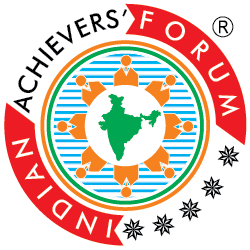“Physical Disability does not have anything to do with Incapability”

Countless lives in India and the world have some or the other type of physical disability, but it does not have anything to do with incapability as the both are two different aspects. And it has been proved by Prasanna Kumar Pincha, Chief Commissioner for Persons with Disabilities, Govt. of India who rose to this position surmounting various aspects of physical disability, creating a history. In a candid conversation with Bachan Singh of CSR Times, he wears his heart on his sleeves to share the Alpha and Omega of persons with disability. Excerpts:
What does your role involve as a Chief Commissioner for Persons with Disabilities, Govt. of India?
A Chief Commissioner is a statutory institution. He is a judicial authority and the functions of his office are around grievances readdressal and safeguarding the rights and facilities made available to people with disabilities. The institution of the Chief Commissioner at the national level and the institution of the Chief Commissioner at the state level have been created under a law called The Persons with Disabilities (Equal Opportunities, Protection of Rights and Full Participation) Act, 1995. That’s how it’s a statutory body. The Chief Commissioner doesn’t formulate schemes nor does he implement schemes. He is akin to an ombudsman, who has to keep a watch over the rights scenario of persons with disabilities across the country. Any person with disability, which comes under the central government or any central government entity, can lodge a complaint to the Chief Commissioner at the center whereas any grievance which comes under state Chief Commissioner or state government entity can lodge a complaint at the state level. The Chief Commissioner also coordinates and oversees the work of all the state Chief Commissioners, monitoring, and management of funds for disability related work.
Is there any change over the years how persons with disabilities have been seen?
I would like to mention some milestones in that regard. The first came into existence when India enacted the Persons with Disabilities Act 1995, which came into force in February 1996. The second milestone was in the year 2006 when India adopted National Policy on Persons with Disabilities. The third and a very important milestone was in 2007 when India ratified very important International Human Rights Treaty called the United Nations Convention on the Rights of Persons with Disability. As a fallout of India becoming a party to that international human rights treaty, now all the disabilities specific legislations and all the other mainstream laws, which have a bearing on the rights guaranteed under the UN Convention on Rights of Persons with Disabilities, will have to be revisited and revised. Towards that, two bills have already been pending in Rajya Sabha for consideration. One is the Rights of Persons with Disabilities Bill, which once becomes an Act will replace the Persons with Disabilities Act 1995, which will be more progressive and elaborative in explaining the rights of persons with disabilities and will ensure that our rights regime becomes more compatible with the UN Convention on the Rights of Persons with Disabilities. The second pending bill in Rajya Sabha is the Mental Health Care Bill. When it becomes a law, it will replace the existing Mental Health Act 1987. Regarding the mainstream laws, the process has already started. The RTE Act has been amended to include the children with disabilities into the category of disadvantaged children. The Copyrights Act 1957 has also been included to ensure that anything which is the public domain could be converted into accessible format for the blind or the print disabled and non-profit purposes. Then you don’t have to necessarily obtain permission from the copyright holders and publishers to convert that into an accessible format. If we look at last 2-3 5 year plans, there is a departure from a welfarist approach to a rights based approach. The GOI in May 2012 has created a separate department namely the Department of Disability Affairs in the Ministry of Social Justice and Empowerment to do focused work on persons with disabilities.
With the Companies Act, 2013 coming into effect, how is it helping in building the nexus among the government, public and private sectors to address the demanding issues of society?
According to me, it’s a welcome move. In any case there must be a coalition amongst the government, the NGOs and the private sector in respect of addressing the social issues. During my conversations with the civil society organisations, very dispassionately, very impartially, I put forth a suggestion often that your strategies viz-a-viz the government should be “Cooperate where you can, resist where you must”. If you have a reasonable justification to something which you feel is not right, then you must resist. But the resistance should be constructive.
How these laws and bills have helped changing the lives of people with disabilities over the years?
Today persons of disabilities are getting recruited in all kinds of jobs, they are even serving as officers of the Indian Administrative Cadres. Today we have education systems for them which didn’t exist 30-40 years ago. The law talks about 3% reservation of seats of central government aided institutions; it also talks about 3% reservation for vacancies for them in government establishments. Similarly, it talks about 3% reservation in poverty alleviation schemes. Certainly, the law has given persons with disabilities certain entitlements which were not there earlier. For instance, before the Persons with Disabilities Act 1995, they used to get reservations in jobs of C and D category and that too through an executive order and not through a Parliament Act.
What are the major challenges in the way of implementing these acts and laws?
One of the major challenges surrounding these laws is how effectively they have been implementing, and that is where I have been focusing my energies a lot by going, monitoring and reviewing the work how it has been implemented. And the status of implementation varies in all states. Albeit changes and benefits have been there, the perspective has also changed, yet one can always argue about the pace of the change.
Where does India stand as compared to many other countries?
India is way ahead as compared to numerous countries in terms of putting the rights regime of persons with disabilities. In 2007, India was amongst one of the first countries to sign the UN Convention of the Rights of Persons with Disabilities. We do have issues concerning the implementation part, but in several aspects we are far ahead than many other nations.
According to you, what are the major challenges persons with disabilities face?
The major challenges they face is that their physical impairment becomes a disability once those impairments interact with various barriers of the society. In order to ensure that these impairments don’t actually get converted into disabling conditions, we need to identify those barriers. And these barriers can be broadly categorized into: a) attitudinal b) environmental c) institutional and d) informational barriers. I strongly feel that the dismantling of attitudinal barrier must proceed the dismantling of the other barriers.
Any touching moment or incidence during your regime here as Chief Commissioner for more than 2.6 years which you would like to talk about?
Albeit there are many, still I would like to talk about some incidences where sometimes the Hon’able High Court has sent some cases to us asking the Chief Commissioner to decide and saying that the decision shall be binding on all parties. So this step of the high court has helped a large number of persons with disabilities across the spectrum.
What more can be done in this area?
The scenario is changing as there has been a transformation in the way people with disabilities have been looked upon. Though corporate and people have opened up, yet I must say I am not very happy with the pace it is happening. Though there is some focus for employing and empowering persons with disabilities like ITC, Infosys et al, but it needs to be accelerated more. The speed of the change needs to go to the next level now.








